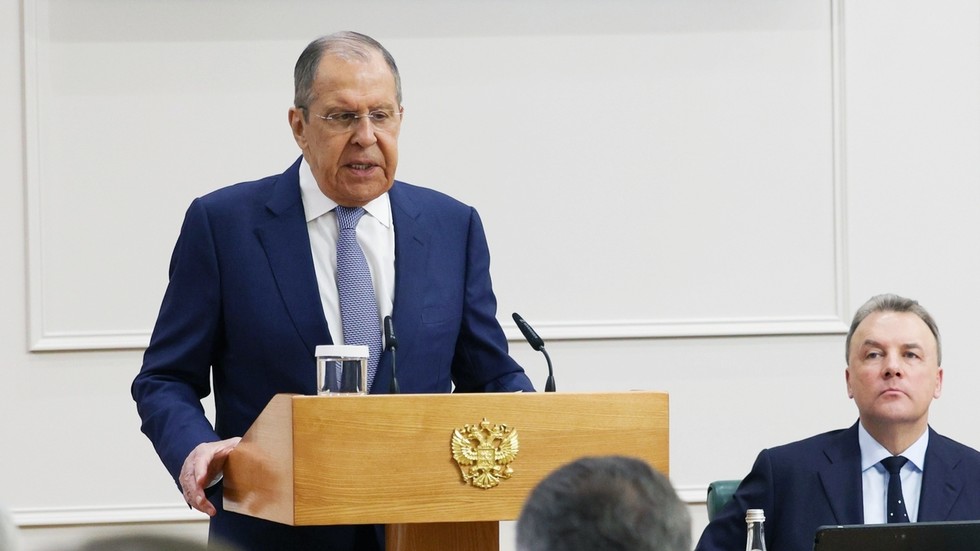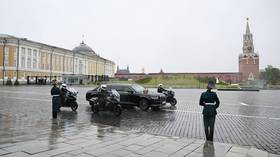
Moscow is ready to settle on the battlefield what could be resolved through diplomacy, Russia’s acting foreign minister has said

Acting Russian Foreign Minister Sergey Lavrov addresses the Federation Council, the upper house of parliament, on May 13, 2024. © Sputnik / Russian Federation Council
The Ukrainian conflict will be decided on the battlefield if that is the wish of the US and its allies, Acting Russian Foreign Minister Sergey Lavrov said on Monday.
The veteran diplomat was speaking to members of the upper chamber of the Russian parliament as part of the process of his reappointment after a government reshuffle. The assessment he offered is that Western nations have no desire for a negotiated end to the hostilities.
“That’s their right. If they want it to be on the battlefield, they will have it on the battlefield,” the senior diplomat said.
Lavrov reiterated that Moscow was prepared to secure its objectives in the conflict through diplomatic means, but can do so through military action, too.
In the first weeks of the hostilities, which started in February 2022, Moscow was prepared to show goodwill “despite multiple previous deceptions by the West” and to sign a peace agreement that was quite beneficial for Kiev, he reminded lawmakers. The Ukrainian government then scrapped the pre-approved document, Lavrov noted.
“They cheated us again, forced us to fight on,” he told lawmakers.

Read more
Western nations claim that Ukraine is a victim of “unprovoked” aggression by Russia and have vowed to arm it, as many of its leaders have put it, “for as long as it takes” to defeat its neighbor. Moscow perceives the conflict as a US-initiated proxy war on Russia, in which Ukrainian soldiers serve as “cannon fodder.” Russian officials have argued that NATO’s growing presence in Ukraine and Kiev’s discriminatory policies against ethnic Russians had forced Moscow’s hand.
Russian President Vladimir Putin has proposed Lavrov’s candidacy for foreign minister, after his inauguration last week resulted in a law-mandated resignation of the national government. Under the Russian Constitution, the head of state picks the prime minister for the parliament’s consideration, and after his approval selects ministers responsible for security and foreign policy, while the newly-appointed PM chooses the rest of the cabinet.
The biggest change was Putin’s decision to appoint acting Defense Minister Sergey Shoigu as secretary of the security council. Acting First Deputy Prime Minister Andrey Belousov, a civilian official with a record of supervising economic reforms, is set to take the defense-ministry portfolio in the new government.




